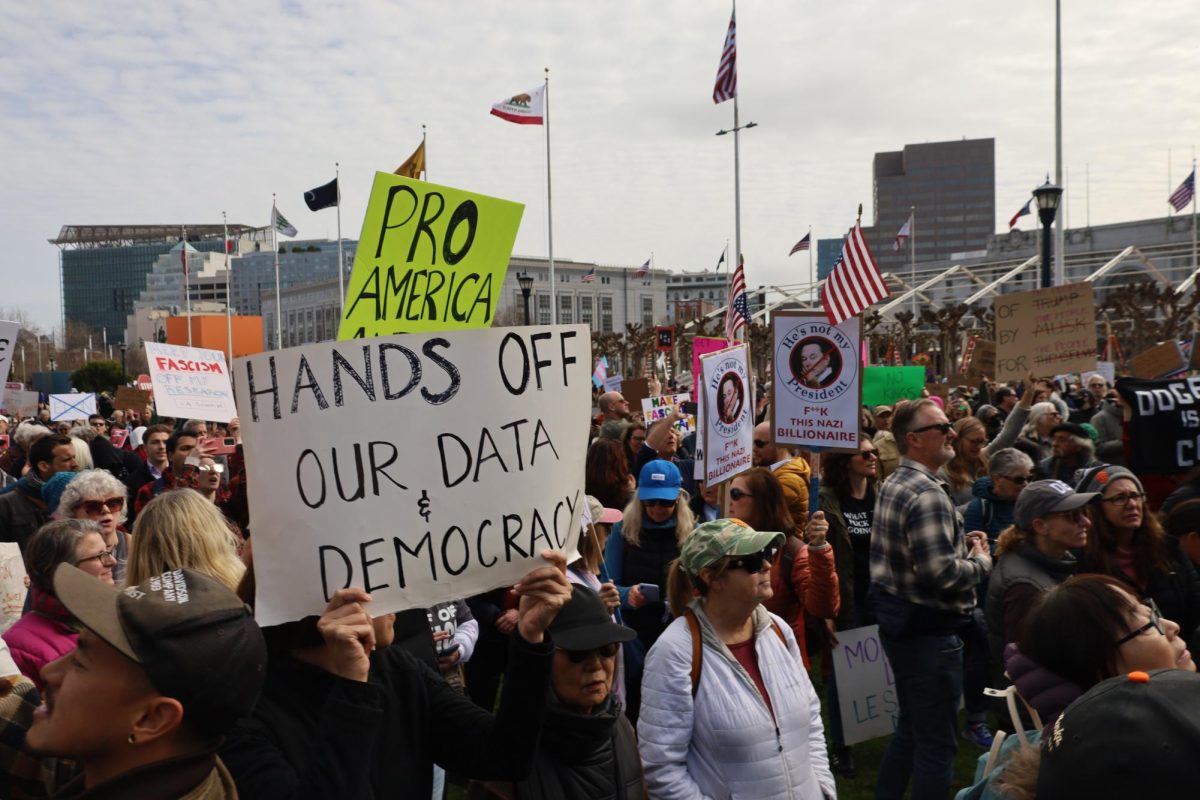The recent measles case on BART and the multistate outbreak may indicate developing problems with vaccination levels, according to public health officials.
Measles cases in the United States reached a 20-year high with more than 23 outbreaks and 600 individual cases recorded in 2014, according to a press release published Jan. 29 by the Centers for Disease Control and Prevention. This is a tenfold increase compared to the yearly median documented by the CDC from 2001-2010.
“This is not a problem with the measles vaccine not working,” said Anne Schuchat, assistant surgeon general and director of CDC’s National Center for Immunization and Respiratory Disease, in a press release. “This is a problem of the measles vaccine not being used.”
Due to high immunization rates during the past decade, North and South America were on track to become the first region in the world to be formally declared measles free, according to a press release by the Pan American Health Organization and World Health Organization. The eradication of measles is now in jeopardy with 125 confirmed cases in the U.S. from Dec. 28 to Feb. 8, as indicated in the CDC’s Morbidity and Mortality Weekly Report released Feb. 20.

Gaps in immunization accounts for the reemergence of vaccine-preventable diseases like measles, according to the PAHO/WHO.
Ramon Castellblanch, professor of health education at SF State and public member of the California Board of Pharmacy, is passionate about this issue.
“People see (not getting vaccinated) as a personal decision, but it is not,” Castellblanch said. “It is a decision you are making for your community.”
Vaccine coverage in the U.S. fails to meet targets like the 95 percent coverage for 2 doses of measles, mumps, and rubella vaccine set by U.S. Department of Health and Human Services Healthy People 2020 program.
California vaccination rates are lower with a median coverage rate of 92.3 percent for the MMR vaccine compared to the national median at 94.7 percent for the 2013-2014 school year, as reported on the CDC website.
The vaccination rate for students at SF State is currently unavailable according to SF State Medical Director Alastair Smith, who said that the school does not track this.
The American College Health Association National College Health Assessment emailed to students earlier this month may soon give the school an idea of this percentage.
Smith said he believes the vaccination rate at SF State is below recommended levels.
“A lot of students have forgotten, because they have never lived in a world where these diseases were serious,” Smith said. “My parents’ generation can remember people that died of these diseases. If you talk to students, they don’t know anyone who has had polio or any of these diseases, so they tend to forget how serious they are.”
The two vaccinations required at California State University’s by state law or executive order are Hepatitis B and measles, mumps and rubella. Due to an elevated risk, the California Department of Public Health recommends three additional vaccines for colleges with student housing: varicella (chickenpox); Tetanus, diphtheria and pertussis (Tdap); and meningococcal conjugatet (meningitis).

“We require proof of (the vaccines),” said Jason Bowen, who works in the department of the Associate Vice President for Enrollment Management. “We require a signed document from the health care provider. Students not proving that proof are not allowed to register for classes.”
Smith said the CSU’s sets requirements on immunization for all 23 campuses. Students can opt out of these requirements with a waiver for medical, religious or personal reasons.
Castellblanch said he questions the exemptions offered at SF State and other CSU campuses.
“My bottom line for SF State students on MMR vaccines would be that persons who are unvaccinated without medical exemption unnecessarily put others at risk for these diseases and related complications,” Castellblanch said.
Adam Burke, a professor of health education and the director of the Institute for Holistic Health Studies at SF State, values the vaccination policy.
“It is a sensible policy, encouraging good public health practice but allowing room for individual differences,” Burke said. “America places a significant value on personal freedom, freedom of speech, freedom to worship as you see fit. It is part of the culture.”
English major Logan Smith said religious belief exemptions are an excuse, despite his support for religious freedom.
“The religious community has been negative toward vaccines for the wrong reasons,” Smith said. “Medical exemptions I can see more, but still if you just have one person infected it can spread.”
SF State Medical Director Alistair Smith said that it is a student’s duty to get vaccinated to stop the spread of preventable diseases.
“To protect others in the community is a reason to get vaccinated,” Smith said. “From a public health perspective everyone should get vaccinated not only for their own health, but for the health of their fellow students, faculty and staff.”
Students can receive several immunizations on campus Tuesdays and Wednesdays at the Student Health Center’s vaccination clinic.







denise • Feb 25, 2015 at 1:54 pm
What are the guidelines for acceptance to opt out of vacine requirements at usfu?